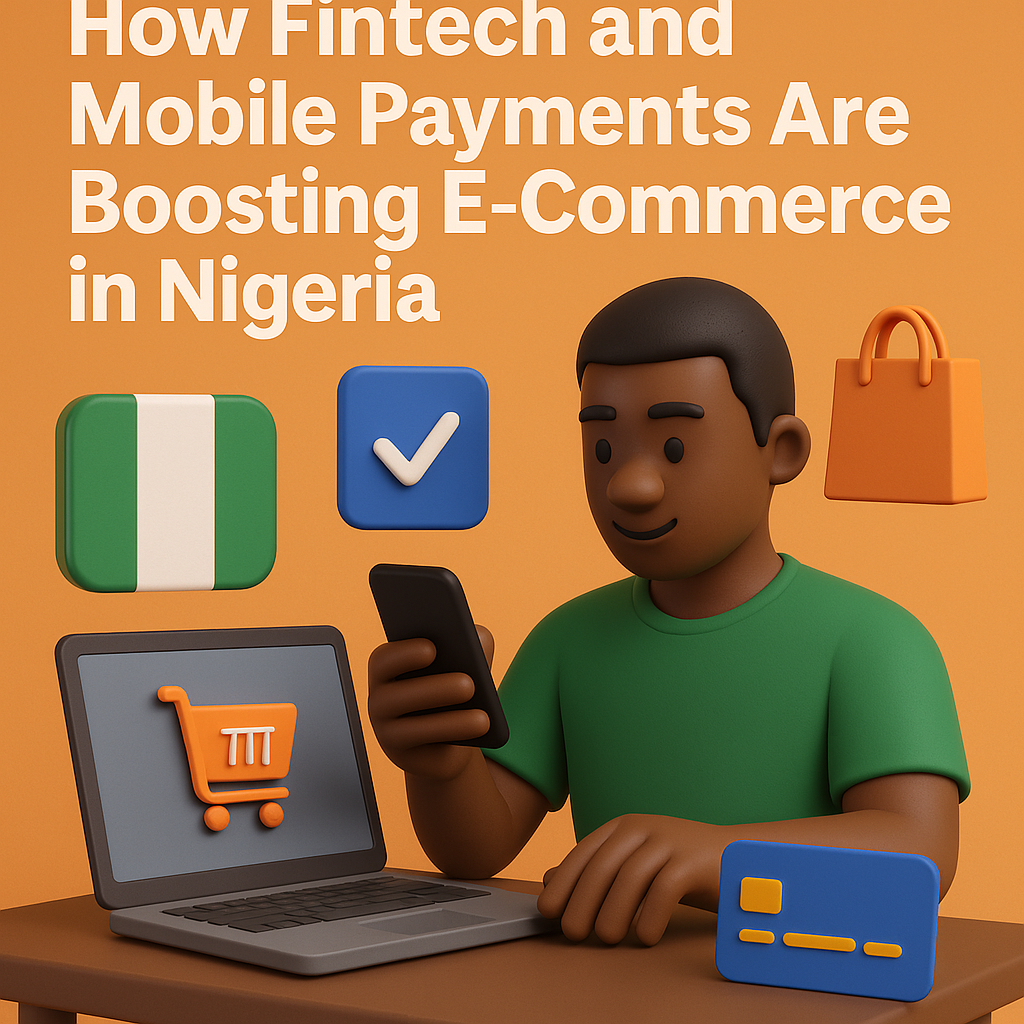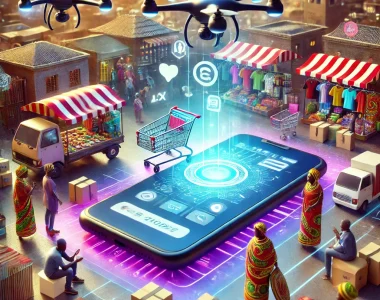
How Fintech and Mobile Payments Are Boosting E-Commerce in Nigeria
Table of Contents
- Introduction
- Driving Financial Inclusion
- Enhancing Payment Convenience
- Fostering Small and Medium-Sized Enterprises (SMEs)
- Building Consumer Trust
- Driving Innovation and Partnerships
- Overcoming Infrastructure Challenges
- Conclusion
1. Introduction
In Nigeria, the e-commerce sector has become a vibrant force, creating opportunities for businesses and consumers alike. At the heart of this transformation is the rise of financial technology (fintech) and mobile payment solutions. These innovations are not only revolutionizing online retail but are also enabling a more inclusive digital economy in one of Africa’s most populous nations.
From cashless transactions to financial inclusion, the collaboration between fintech and e-commerce is reshaping the landscape and driving growth in ways previously unimaginable. This blog explores the key ways in which these technologies are propelling e-commerce in Nigeria to new heights.
2. Driving Financial Inclusion
In Nigeria, a significant portion of the population remains unbanked. According to the World Bank, about 45% of Nigerians did not have access to traditional financial services as of 2021. Fintech solutions, such as mobile wallets and digital payment platforms, are addressing this gap by offering convenient and accessible alternatives to banking.
Platforms like Paga and OPay enable users to deposit, withdraw, and transfer money using their mobile phones, even in remote areas. This has allowed more people to engage in e-commerce, creating a broader consumer base for online retailers.
3. Enhancing Payment Convenience
In the fast-paced world of e-commerce, a seamless checkout experience is critical. Fintech and mobile payment solutions have revolutionized this aspect of online shopping in Nigeria. With options such as Flutterwave and Paystack, consumers can make secure online payments with just a few clicks.
Additionally, features like USSD codes allow users without smartphones or internet access to make digital payments. This convenience is reducing barriers to e-commerce participation and enhancing customer satisfaction.
4. Fostering Small and Medium-Sized Enterprises (SMEs)
Small and medium-sized enterprises (SMEs) are the backbone of Nigeria’s economy, and fintech has played a vital role in their digital transformation. Many SMEs now accept various payment methods, including mobile money and online transactions, which expand their customer base and boost revenue.
Beyond payments, fintech companies are providing SMEs with affordable tools such as point-of-sale (POS) systems and access to credit. For instance, platforms like Lidya offer small business loans to help entrepreneurs scale their ventures, making them key players in the e-commerce ecosystem.
5. Building Consumer Trust
One of the biggest challenges for e-commerce in Nigeria has been building trust between consumers and online platforms. Security concerns around online payments have deterred many potential shoppers. However, fintech companies are addressing this issue head-on with advanced security features like encryption, two-factor authentication, and real-time transaction alerts.
For example, Interswitch is known for its secure payment processing services, which have increased consumer confidence in online transactions. As trust grows, so does the willingness of Nigerians to engage with e-commerce platforms.
6. Driving Innovation and Partnerships
The collaboration between fintech startups and e-commerce platforms has sparked innovative solutions that enhance the shopping experience. One notable example is the “buy now, pay later” model, which allows consumers to make purchases and pay in installments. Companies like Carbon have pioneered such services, making high-value products more accessible to the average Nigerian shopper.
Furthermore, partnerships between fintech and e-commerce businesses are driving loyalty programs and cashback incentives, encouraging repeat purchases and fostering customer loyalty.
7. Overcoming Infrastructure Challenges
Nigeria’s e-commerce growth has been hindered by infrastructure challenges, such as erratic electricity supply and limited internet access. Fintech companies have stepped in to provide solutions, such as offline payment systems and USSD-based transactions.
For instance, mobile money services often work without a consistent internet connection, enabling consumers in underserved areas to participate in e-commerce. By overcoming these barriers, fintech is playing a crucial role in democratizing access to the digital economy.
8. Conclusion
The synergy between fintech and mobile payment solutions is driving the rapid expansion of e-commerce in Nigeria. By increasing financial inclusion, enhancing convenience, and fostering trust, these technologies are creating a thriving digital marketplace.
As Nigeria continues to embrace digital transformation, the partnership between fintech and e-commerce is poised to unlock new opportunities and fuel economic growth. Businesses that invest in and adapt to these innovations will be well-positioned to thrive in Nigeria’s evolving e-commerce landscape.





